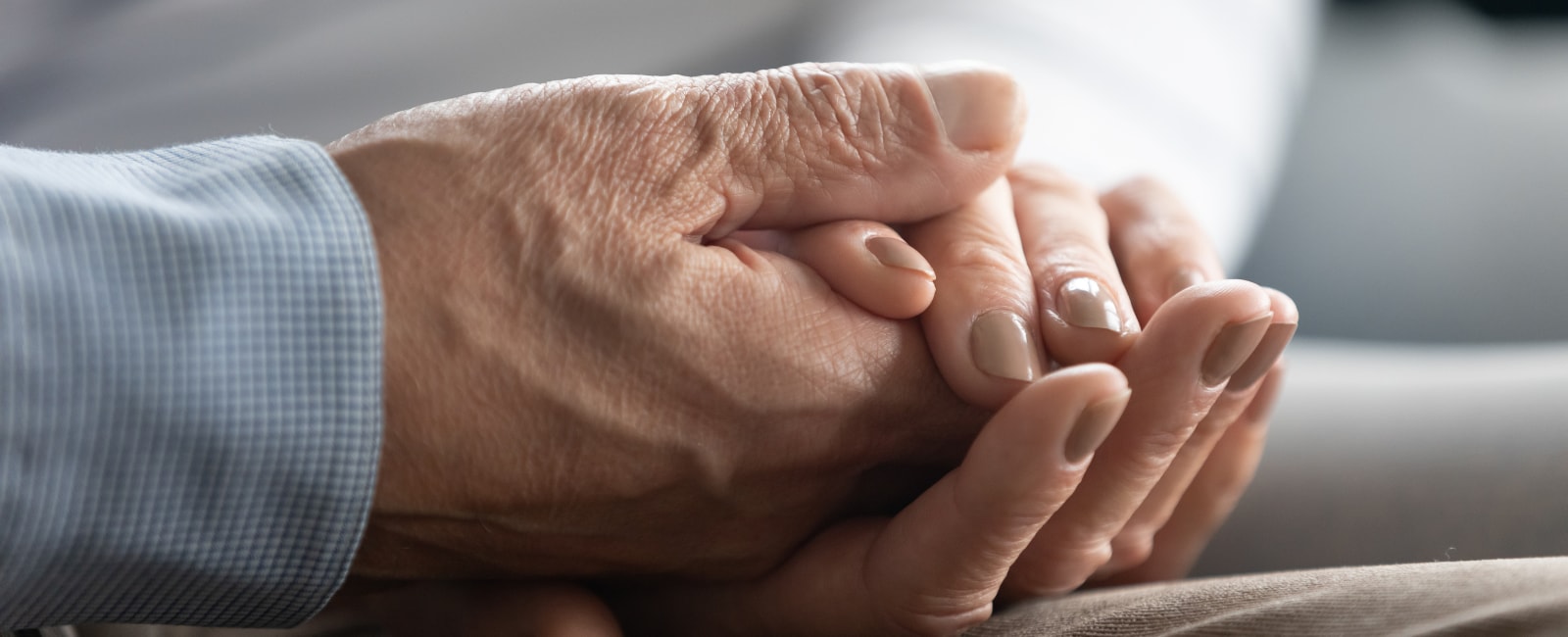When Spouse Becomes Caregiver

Written by Nancy Sokoler Steiner
A hearty 86-year-old, Fritz Scheiwe still mowed the lawn, took care of household maintenance and managed the household finances. He followed politics and enjoyed reading articles about history.
All that stopped after he was diagnosed with stomach cancer. Now taking oral chemotherapy, “He’s not there like he used to be,” reports his wife, Doris Scheiwe [pronounced SHY-va]. “He has no interest in what he used to do and no appetite for food.”
After more than six decades of marriage, Scheiwe has taken on the role of spousal caregiver, a transition encountered by an estimated 5.7 million adults according to the Well Spouse Association. “Life has totally turned around,” she says. “Everything he used to do, I do now.”
Clinical Social workers Stephanie Rojas and Vivian Lee from Torrance Memorial Medical Center’s Home Health and Palliative Care programs note this shift changes the couple’s dynamic. “There can be conflict in that dual role of partner and caregiver,” says Rojas. Spouses need to understand and acknowledge this new role, adds Lee. “Things won’t be the same way they were. One spouse is now taking on a work role.”
According to the University of Pittsburgh, spousal caregivers tend to have worse self-rated health than other types of caregivers. A university study found close to one-third of spousal caregivers reported poor physical health at least four days of the previous month. Emotions also take a toll. “Caregivers can feel overwhelmed, stressed and guilty, as well as isolated,” says Lee. “It’s a tough job. They need a lot of support and to know they’re not alone.”
Rojas notes there are a variety of resources for caregivers. Torrance Memorial offers a weekly caregiver support group on Tuesday afternoons* (see page 14 for details), which is open to the community. Scheiwe participates in this group. “It’s helped tremendously,” she says. “I’ve learned a lot from the questions other participants ask.”
Condition-specific organizations, such as the American Cancer Society, Cancer Support Community and the Alzheimer’s Association also offer support groups. Support groups may be offered by churches, senior living facilities and other hospitals. Short-term telephone counseling is another option. Rojas also suggests having someone who can assist with caregiving, such as an outside caregiver. California’s In-Home Supportive Services program (IHSS) may provide house cleaning, meal preparation, personal care and other services for individuals on Medi-Cal.
Caregivers must remember to take care of themselves physically and emotionally. Soon after her husband’s stomach problems began, Scheiwe herself was hospitalized with stomach problems caused by stress.
Lee and Rojas suggest identifying things that help with coping, such as taking a walk, meditating or listening to music. Scheiwe, for example, swims three times a week and attends two singing groups. “I need to do something for myself,” she says. Sometimes other family members can provide respite. Scheiwe’s son stays for two weeks every other month. During one of his visits, she went on a four-day retreat with friends. Her daughter in Orange County also pitches in.
Lee says couples may have promised they would never send one another into an assisted living or skilled nursing facility. However, they may not have understood the intensity of caring for someone who is ill, particularly toward the end. “We try to help them extricate themselves from this pledge if it’s impractical and to understand it’s okay to look at alternatives.”
Even if caregiving is for a shorter term, it can be overwhelming. Sarah Bruce, age 60, took care of her husband, Stephen Kerr, a media business consultant, when he experienced a relapse of lymphoma. Along with chemotherapy, Kerr, age 70, underwent a stem cell transplant in August of 2020.
“My job was to be objective, do what was needed and update the family,” she says. “I stayed focused on being his advocate and staying in the moment so I wouldn’t fall apart.” A practitioner of mindfulness for more than a decade, Bruce also found meditation helpful. But while Kerr is in remission, Bruce still feels the need to remain vigilant.
Social worker Rojas notes caregivers can be very hard on themselves. “They need to remember to ask themselves what they need and what boundaries they have.” Most importantly, both Lee and Rojas offer one key piece of advice to caregivers: Be kind to yourself.
To register for the Caregiver Support Group, currently held on Zoom, call 310-517-4701.